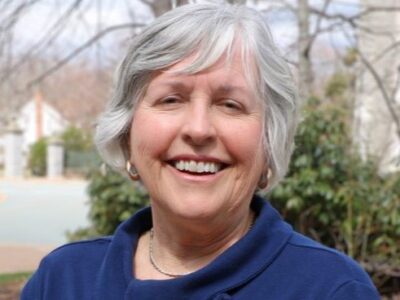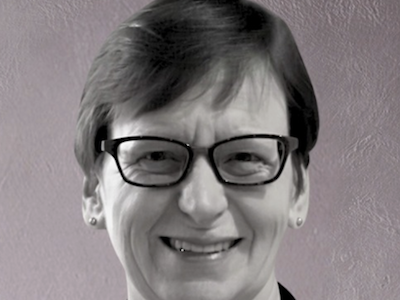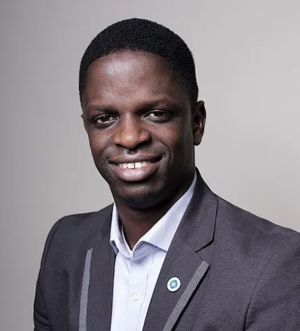
Leo Nupolu Johnson, founder and Chief Empowerment Officer (CEO) of Empowerment Squared.
Leo Nupolu Johnson is the founder and Chief Empowerment Officer (CEO) of Empowerment Squared, a nonprofit organization that works with newcomer youth and families primarily in Southwestern Ontario and West Africa. His expertise spans nonprofit management, international development, immigration and resettlement, fundraising, and financial management – and he’s received many awards for his groundbreaking work over the past two decades. He spoke with PANL Perspectives about the organization’s unique approach to working with youth and newcomers.
Question: How did you start Empowerment Squared, and how does it work with young newcomers?
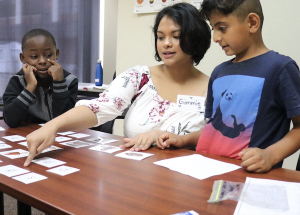 Leo Nupolu Johnson: Empowerment Squared started as a combination of my experiences as a government-sponsored refugee and the realities of what I encountered as an unaccompanied minor when I settled into Canada in 2006. A number of things shocked me, like finding out that kids dropped out of high school, especially a lot of kids from the Black community, even though school was free. Where I come from, in Liberia, if your parents can’t afford to pay up front, you’re not going to school.
Leo Nupolu Johnson: Empowerment Squared started as a combination of my experiences as a government-sponsored refugee and the realities of what I encountered as an unaccompanied minor when I settled into Canada in 2006. A number of things shocked me, like finding out that kids dropped out of high school, especially a lot of kids from the Black community, even though school was free. Where I come from, in Liberia, if your parents can’t afford to pay up front, you’re not going to school.
Another thing was that nothing was tailored for young people; I was completely lost, because all the immigration information, orientation, shelter and everything was tailored to adults, except that I didn’t arrive in Canada with my parents or adults who could understand the language. Then I quickly noticed that young people who arrive with their parents face the same problems, have similar challenges as youth without parents — and that’s why my interest developed in trying to understand how to better integrate young newcomers.
 At the time, there was a lot of emphasis on adults getting jobs and shelter, with the assumption that when adults do well, kids follow, but I quickly found out that wasn’t the case. In reality, it’s the kids who venture into the community, daringly; they go to school, get to know people and make friends to learn the language. Parents are often more set in their ways and are more careful, and, as a result, they rely a lot on their children to do banking, listen to phone messages, accompany them to a doctor’s appointment, rely on them for everything — and the children become super-parents.
At the time, there was a lot of emphasis on adults getting jobs and shelter, with the assumption that when adults do well, kids follow, but I quickly found out that wasn’t the case. In reality, it’s the kids who venture into the community, daringly; they go to school, get to know people and make friends to learn the language. Parents are often more set in their ways and are more careful, and, as a result, they rely a lot on their children to do banking, listen to phone messages, accompany them to a doctor’s appointment, rely on them for everything — and the children become super-parents.
I found out quickly that the education system still plays a massive role in integration, and not just for newcomers, but for families living in poverty or dealing with marginalization. The education system has the single greatest impact on a young newcomer’s journey. The ones who do well or who can navigate the education system tend to show more positive outcomes, and not just economically, but also for mental health, emotional health, all of it.
So, Empowerment Squared improves educational outcomes primarily for newcomer youth and families, but we don’t turn anybody away. Our doors are open to everyone.
Q: How did the Southwestern Ontario Black Entrepreneurship Network start, and why is it a success?

Zuleeats, famous for its traditional Ghanaian meat pies and diverse menu, is a celebrated, family-owned, women-owned, Black-owned business in Windsor-Essex County, Ontario.
Leo Nupolu Johnson: SWOBEN provides access to education, resources and advisors for Black entrepreneurs, including business owners and nonprofit leaders. One reason it’s successful is that it helps people to figure out what they need to do in terms of tools and resources, such as creating feasibility plans, creating business plans, approaching a bank, using an innovation hub – but that’s only part of it. We contextualize these tools and resources, which is more important.
I’ll use the innovation hub, present in most cities, as an example. When you visit one, you see, predominantly, a population of non-marginalized community members. When a marginalized entrepreneur goes to an innovation hub in Hamilton, they hear the language about business plans, the terms being used about strategies, the talk about this and that, and they get lost, because they don’t have the context, don’t understand some of the assumptions or don’t know the cultural foundations. As a result, many people, especially Black entrepreneurs, don’t go to innovation hubs, because, for them, it feels a bit embarrassing, because they can’t relate, even though they’ve been successful or entrepreneurial for years.
Also, there’s a lot of focus on “business” when Canadians talk about entrepreneurs – perhaps too much focus on business. Business is a big part of entrepreneurship, yes, but you can be very entrepreneurial in your life, in your career, as a person and as part of the nonprofit sector. SWOBEN is successful because it teaches Black people, Black business owners, about tools and resources and contextualizing those in culturally relevant ways.
Q: What is Empowerment Squared doing in Africa?
Leo Nupolu Johnson: We’re in Liberia and Ghana. We see our work there and in Canada as intertwined. The sooner that kids know there’s a world that’s bigger than Canada, bigger than North America or Africa, the better they’ll prepare for the realities of getting an education, of a career, of life, and of all the things they have to do when they grow up.
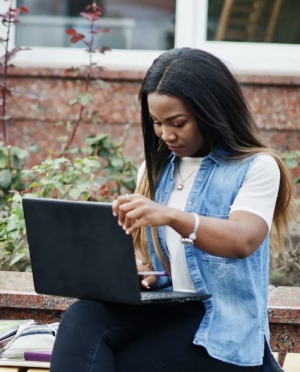
Empowerment Squared offers structured, four-month placements in Liberia and Ghana for youth aged 18-30. The paid internship focuses on culturally relevant research. The first cohort starts in January 2025.
We run many international programs. We recently launched the International Youth Internship Program (IYIP), providing four-month placements in Liberia and Ghana for youth aged 18-30 years old from marginalized communities or youth of African descent in Canada. The paid community-based research internship in Ghana will look into improving educational facilities and outcomes in rural areas, and in Liberia, it focuses on research that empowers grassroots organizations to overcome substance abuse and mental health challenges in a culturally relevant manner.
And in Liberia, we are set to launch the country’s first state of the art comprehensive learning center, which will include a public library, children’s library, co-working spaces, incubation spaces, and sports and event facilities, all for a catchment area of more than 250,000 community members. We’re aspiring for the best resources and facilities with the Liberian Learning Centre.
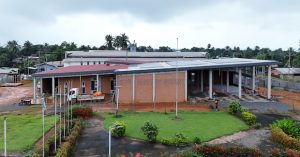
The Liberian Learning Center is being built on the grounds of Paynesville City Hall with the support of the Paynesville City Corporation.
Someone once asked me why we’re doing this project for $2 million when we could build a small reading room or something else for Liberian youth instead, and I knew that that person had sent their children to one of the most expensive private schools in the city. I asked, “Why don’t you send your child to the local school around the corner? Why does it have to be the best school?” He understood. We all have an innate desire of wanting the best for our youth. We should keep pushing and encouraging youth to aspire for the best, no matter where they live.
My approach is to find solutions in Canada and to share the things that we have in abundance with other parts of the world, where people are literally dying to get access to solutions. We can do both – work with youth here and there. It’s not about only resources. It’s about doing what you can within your means; that’s our approach at Empowerment Squared. We’re not going to save the world. We don’t have to save the world. But what can we do? We can do something with $2 million and we do something with $5,000. We do our part.
Q: I’ve read about your approach with entrepreneurs who work outside of formal economic systems in Africa. Can you explain it?
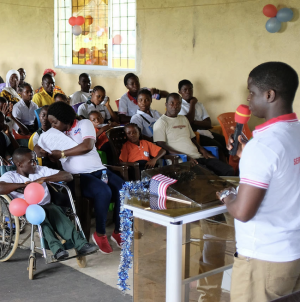
Empowerment Squared is implementing the Harnessing Opportunities to Promote Entrepreneurship (HOPE) program to empower 75 economically and socially disadvantaged Liberians aged 18-35 through digital literacy, financial literacy and basic entrepreneurship skills.
Leo Nupolu Johnson: Usually, when people go to countries like Liberia and talk about entrepreneurship, they go with the same old idea about “business,” about a “business plan,” about working with financial and government institutions — and many Liberian entrepreneurs lose interest. In a country where close to 75% of the economy is informal – with local markets, street hawkers, and people who don’t pay taxes and still run their own small businesses — there’s more cash outside of the banks than inside the banks, more cash outside of economic systems. The situation is similar in most African countries. At Empowerment Squared, we approach Liberians who work in the informal sector, people who already know how to produce, sell, hustle, and run successful informal businesses.
Let me give you an example. We approached a young woman who was paying for five children to go to school on a business inventory of less than $50 in total. She managed to turn around and run a small business without any of the “business” skills that you’re supposed to need. She already had the discipline of an entrepreneur. We offered training about some practical skills, like financial literacy and tax laws, and about how to strategize, to take her business from a table market to a shop, and how to structure a salary for herself, including hiring a person who could help expand her business and revenues.
Here’s another example. We had an event in Liberia, and we wanted to hire a caterer, but we couldn’t give her the contract, because she didn’t have a bank account, didn’t pay taxes, and wasn’t registered anywhere formally. I explained to her that, as an organization, we can’t hire people with cash-only transactions who are not operating legally, because we have to track our spending, we have to show how we use our money, we have to report to auditors.
This became a good learning moment: she opened a bank account, registered legally and paid less than $500 in taxes for the whole year – and gained a catering contract of $6,000. So, she saw that, yes, taxes can be a burden, but that there are other benefits to expanding into the formal economy and contributing to the development of the country.
The first time we ran this program, in 2021, 65% of the participants grew their businesses from travelling vendors to permanent shops. Now, most of them are part of the formal economy in Liberia.
Q: What can governments or the nonprofit sector do better, given what you’re saying about young newcomers and entrepreneurs?
Johnson: Consistency. It’s not about how much money. It’s about consistency. As someone who came as a refugee and went through programs, including in the refugee camps — I spent a little more than eight years in two refugee camps — it’s amazing what consistency does.
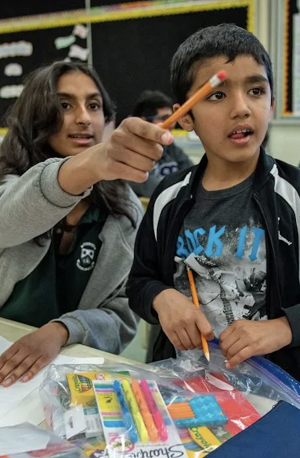 A lack of consistency keeps people in a temporary situation, keeps people in crisis. For example, we ran a sports program for one year, and the kids got used to it. The program became a source of positive, social-emotional-health for them, and they had a great place to go. Two years ago, the funders decided not to fund it anymore, so we closed it down. Youth experience this kind of thing all the time; just as they’re settling into something, it gets shut down or it shifts to something else entirely. The nonprofit sector needs to have a serious conversation about evolving from short-term crisis mode to long-term planning mode — and evolving from donations to investments.
A lack of consistency keeps people in a temporary situation, keeps people in crisis. For example, we ran a sports program for one year, and the kids got used to it. The program became a source of positive, social-emotional-health for them, and they had a great place to go. Two years ago, the funders decided not to fund it anymore, so we closed it down. Youth experience this kind of thing all the time; just as they’re settling into something, it gets shut down or it shifts to something else entirely. The nonprofit sector needs to have a serious conversation about evolving from short-term crisis mode to long-term planning mode — and evolving from donations to investments.
Don’t get me wrong, donations are great. Empowerment Squared accepts donations, but donations are more crisis prone. A $500 donation to do something is great, but that something ends. However, when someone invests $10 or $200 a month, then our organization can plan for a longer term in a more consistent manner.
It’s the same with funders and grants. We transitioned most of our relationships to three to five years of funding, minimum, because we can’t plan and hire for less than that without unsettling and dislodging communities. We can effect real change if we plan for five to 10 years; a kid who joins at 15 years old will be 25 years old after ten years – and that means the program was their life and became part of their community.
What’s important is investment, not charity. What’s important is empowering nonprofits to provide solid returns on investment in terms of improved mental health, poverty reduction, educational attainment or better training – all with meaningful measurement indicators. This kind of investment in youth isn’t about a charitable contribution or conversation; it’s about fulfilling a return on investment to improve lives.
Empowerment Squared is on Instagram, Facebook and X (Twitter). Leo Nupolu Johnson is on LinkedIn.
Sign up for PANL Perspectives, MPNL’s free newsletter.
Thursday, September 5, 2024 in For homepage, Newcomers & Youth, News & Events, Social Finance
Share: Twitter, Facebook

